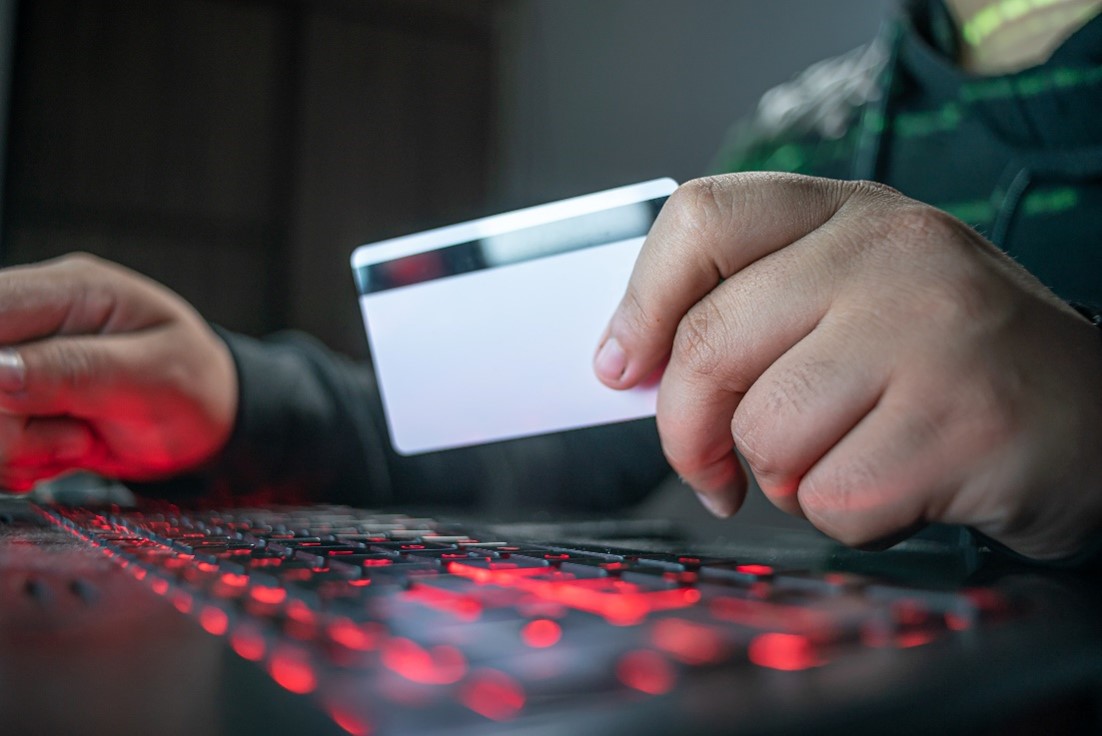Gift cards are an easy way to say “thank you” to a coworker or celebrate the achievements of a grandchild. They even make for a fun treat for future-you! But online scammers have found a sinister side to everyone’s favorite stocking stuffer, and gift card scams are unfortunately growing more common (and trickier to recognize) by the day. In fact, according to the FTC, nearly 40,000 people reported roughly $148 million in stolen gift cards in just the first nine months of 2021 alone.
If you aren’t sure what to look for, you might fall into a gift card scam that could put both your money and personal information at risk. Read on to learn about some common gift card scams, how to recognize them, and what to do if you’re faced with one.
What is a gift card scam?
Not all gift card scams use the same techniques, but most involve a stranger who contacts their victim via phone call, text message, or email. The scammer then demands an urgent payment in the form of a gift card.
For example, a scammer may pose as someone from the IRS and warn their victim they owe tax money, then encourage immediate payment in the form of a retail gift card.
Common warning signs of a gift card hoax include:
- The use of high-pressure terms such as “immediately” or “act now:” Scammers use urgent language to invoke fear, which causes people to make impulsive, misguided decisions.
- Asking for payment via gift card: Scammers like gift card payments because, similar to cash, they offer little protection for buyers. However, unlike cash, they can be exchanged over the internet or phone. Options that involve a bank or a third-party payment service such as PayPal are less desirable to scammers due to higher levels of buyer protection.
- A stranger claiming to work for the government or the IRS: No government agency will ever request payment via gift card.
Common types of gift card scams

Gift card scams can appear almost anywhere in the digital space, such as on:
- Websites
- Smartphones
- Personal and work email accounts
Now let’s walk through some of the most common gift card scams so you can avoid falling for them.
An attacker threatens you for a gift card payment
If you receive a call, text, email, or any other form of communication from someone claiming to be from the government who threatens to arrest or otherwise penalize you unless you give them a gift card, you’re dealing with a scam. The same is true for any business who makes these claims. A legitimate business or government entity will never ask you to pay a fine, taxes, or any sort of bill using a gift card.
For example, if you receive a call from someone claiming to work for your utility company who threatens to turn off your electricity immediately unless you purchase and send them a gift card, cease contact immediately. This person is attempting to scam you.
To avoid falling victim to this common cybercrime, look up the official website and phone number of any business or government agency that contacts you and asks for money. Then, simply call and verify that all communications you received were legitimate before transferring your funds.
A scammer drains your gift card balance

Scammers and hackers are often much more sophisticated than their victims expect. Sometimes, hackers use bots to streamline their thievery. Bots are automated software applications that can perform online tasks. While many of them are helpful and even fun to interact with, such as the chatbots you’ve probably spoken to on retail websites, some are far more nefarious.
Experienced hackers use content scraping bots to search retailers’ gift card systems and identify the ones that have been activated. The bots will then steal the activated card numbers. Hackers will use the remaining balance to purchase goods, or even sell the cards on the dark web.
To protect your gift cards from these schemes, aim to spend them in full shortly after activation. This way, the balance isn’t a sitting duck for hackers.
Someone tampers with your gift cards before you buy them
Some scammers will arrange for your gift card balance to be stolen before you even buy the card. These thieves will remove the sticker that protects a card’s PIN, log the numbers, and cover the PIN back up as if no one ever touched it. Then, the scammer will monitor the card online or by phone to find out when the balance has been loaded. They can use your card information and spend the balance online before you even have a chance to use it.
To lessen the chance of falling victim to this scam, purchase gift cards directly from the retailer of your choice. Buy gift cards online if possible. If you must buy a card in store, always check for signs of tampering.
A hacker phishes for your personal information

Unlike other forms of gift card hoaxes, a phishing scam may not directly involve a gift card at all. For example, in a spear phishing scam, the “gift card” does not exist at all but is simply a diversionary tactic used to gain access to your personal information.
If you’re unlucky enough to encounter one of these scams, you’ll receive a highly targeted—and often convincing—email from a scammer who aims to gain your trust. In this email, you’ll be asked to click a link or fill out a form with personally identifiable information (such as your Social Security number or bank account information) in exchange for a gift card. Of course, these scammers won’t actually send you a gift card. But they could end up stealing your money, login info, or other sensitive personal information.
A stranger claims you’ve won a prize
Another tactic to watch out for is a stranger contacting you and claiming you’ve won a contest you don’t remember entering, or in some cases, even the lottery! But of course, there’s a catch. You have to pay a fee using a gift card in order to claim your prize. If you haven’t entered any contests or sweepstakes, it’s definitely a scam.
Even if you did enter a contest recently, you should never have to pay a fee—especially with a gift card—to receive your reward.
Other ways to avoid gift card scams
Cybercriminals are lurking just out of sight in every corner of the internet. The first step to protect yourself from scams is knowing how to recognize them. When gift cards are involved, no legitimate business, service provider, or government agency will ever ask you to make a payment using a gift card.
Steer clear of anyone who asks for personal information in exchange for a gift card. And don’t fall for urgent demands for a gift card payment—even if the scammer threatens dire consequences. Remember no legitimate contest will ever ask for a gift card payment to deliver your reward either.
Interested in more info on common internet and phone scams, and how to avoid them? Visit the Quantum Fiber blog to learn more about safeguarding your personal info so you can browse the internet with confidence.








